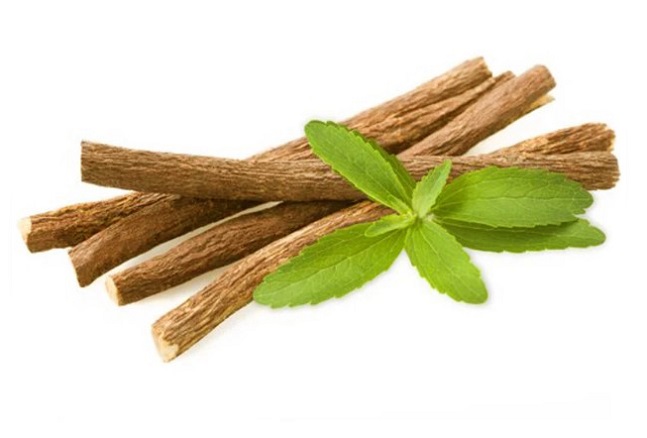Nikhil Prasad Fact checked by:Thailand Medical News Team Sep 01, 2025 6 months, 4 days, 7 hours, 45 minutes ago
Medical News: Licorice Compound Could Be a Gamechanger for Influenza Treatment
A team of researchers from the Nanjing University of Chinese Medicine and the Academy of Military Medical Sciences in Beijing have made an exciting discovery. They found that licoflavone B, a natural compound extracted from licorice, can strongly suppress influenza viruses by targeting a key enzyme that the virus needs to multiply. This
Medical News report highlights why this finding is significant at a time when flu strains continue to evolve and develop resistance to existing drugs.
 Phytochemical Found in Licorice Shows Strong Potential Against Flu Viruses
Why Influenza Remains a Global Threat
Phytochemical Found in Licorice Shows Strong Potential Against Flu Viruses
Why Influenza Remains a Global Threat
Influenza A has been responsible for some of the deadliest pandemics in history, including the 1918 Spanish flu that killed over 40 million people. Current antiviral drugs face major challenges—many strains are resistant to older medications, while newer ones such as baloxavir and favipiravir can trigger resistant mutations. This makes the search for safer and more effective treatments a top priority for public health.
How Licoflavone B Works
The study showed that the phytochemical licoflavone B specifically blocks the RNA-dependent RNA polymerase (RdRp)—the viral “copy machine” that allows influenza viruses to replicate inside human cells. By shutting down this enzyme, licoflavone B stops the virus from reproducing.
In laboratory experiments, the compound successfully inhibited several strains of influenza, including the well-known H1N1, the seasonal H3N2, and even a clinical isolate of influenza B.
Researchers confirmed its action through multiple tests, including genetic assays, Western blotting, and imaging. They also ran advanced computer simulations to visualize how licoflavone B binds tightly to critical regions of the viral RdRp enzyme. Importantly, it showed stronger antiviral activity than favipiravir, one of the drugs currently used against influenza.
Strong Results with Safety Potential
The experiments revealed that licoflavone B was effective at very low concentrations, while showing only limited toxicity at much higher doses. Its selectivity index (SI) ranged from 14.9 to 29.9, meaning it has a good safety margin in terms of dosage. Even when introduced later in the infection process, the compound still displayed antiviral effects, suggesting it can work at different stages of viral replication.
Broader Implications
Licorice has been used in traditional Chinese medicine for centuries to treat respiratory illnesses. Now modern science is validating its potential with precise mechanisms. If future studies confirm these results in animal models and eventually in humans, licoflavone B could be developed into a broad-spectrum antiviral. This means it may not only help with influenza but could also hold promise for other viral infections.
Conclusion&l
t;br />
The discovery of licoflavone B as a natural and effective RdRp inhibitor marks a significant step forward in the global fight against influenza. Unlike many current drugs that lose effectiveness due to viral mutations, this compound directly targets the virus’s essential replication machinery. The findings provide fresh hope for developing safer, natural-based antivirals that could work across multiple flu strains. However, scientists stress that more work is needed to refine the compound, reduce potential toxicity at higher doses, and test its performance in living organisms. If successful, licoflavone B could become an important tool in reducing the burden of seasonal flu outbreaks and even future pandemics.
The study findings were published in the peer reviewed journal: Viruses.
https://www.mdpi.com/1999-4915/17/9/1157
For the latest on Antivirals, keep on logging to Thailand
Medical News.
Read Also:
https://www.thailandmedical.news/news/further-research-into-the-phytochemicals-contained-in-licorice-root-might-yield-a-treatment-for-the-new-coronavirus-strain-in-china
https://www.thailandmedical.news/news/covid-19-herbs-german-in-vitro-study-shows-that-the-phytochemical-glycyrrhizin-extracted-from-licorice-root-is-able-to-inhibit-sars-cov-2
https://www.thailandmedical.news/news/liquiritigenin-from-licorice-shows-promise-as-cancer-fighter
